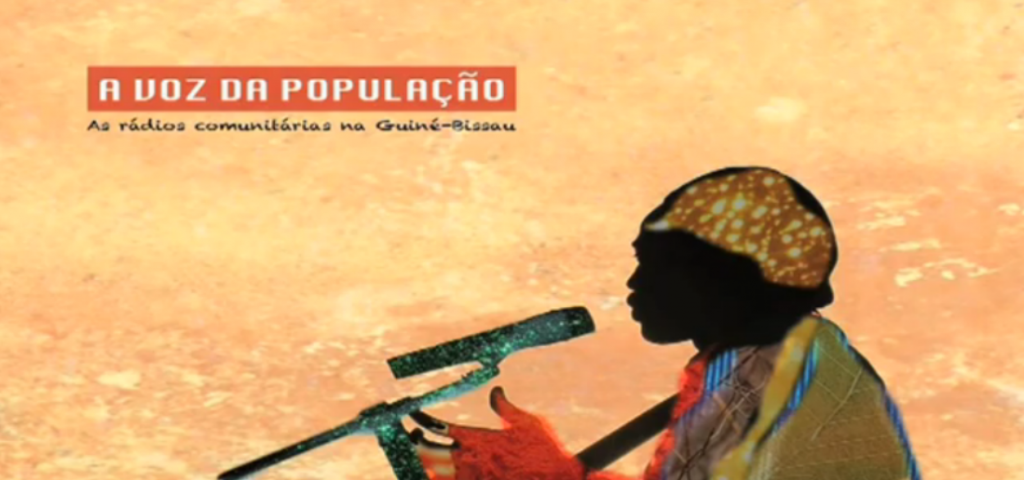Guinea-Bissau's community radio does much more than fill local airwaves with music, a recent documentary reveals.
Stations have saved lives during a cholera outbreak, fought against illegal logging, and pushed back against gender discrimination, all the while uniting local communities around the rich musicality of Guinea-Bissau, according to the 26-minute film “Voice of the Population” filmed in 2012 and released in February 2013.
The Dutch documentary, directed by Polish filmmaker Andrzej Kowalski and written by Lucia van den Bergh, aims to present “the path followed by the community radios in Guinea-Bissau, the challenges that have been raised throughout their development, their appropriation by the communities and the principles they follow”.
The full documentary is available on YouTube as well as in Portuguese and French:
Several leading figures from some of the 30 radio stations found throughout the country – even in the most isolated regions – are interviewed in the film. According to the documentary, today they represent the most popular media in Guinea-Bissau, and that is partly due to the boost that they have been given by Carlos Schwarz, director of the non-governmental organization Acção para o Desenvolvimento (Action for Development).
In the film, Schwarz declares that community radios are a “fait accompli, they are a popular force”:
Estas rádios têm o apoio, têm as costas, vivem nas costas da população. E isso faz com que o poder tenha muitas dúvidas, muitas reservas em contestar ou querer silenciar estas rádios. E sobretudo porque estas rádios têm-se comportado com uma dignidade, com um profissionalismo, com um rigor político que ninguém pode dizer que estão ao serviço de partidos ou de interesses económicos. Mas de facto representam exclusivamente as preocupações das populações locais.
E isso é a grande força destas rádios e faz com que o governo muitas vezes – não as apoiando – também não as combata. A independência em relação aos interesses políticos e económicos é a pedra de toque das nossas rádios comunitárias. No dia em que elas abdicarem deste princípio, estão a condenar-se a si próprias e estão em vias de desaparecer.
These radios have the support, the backing of the population. And that gives government serious doubts and reservations about opposing or silencing these radios. Moreover, these radios have conducted themselves with the greatest dignity, professionalism, and political exactness, so that no one can say that they are serving [political] parties or economic interests. In fact the radios are the sole representatives of the concerns of local people.
That is the greatest force of these radios and because of it – even though the government may not support the radios – it will not attack them. Independence from political and economical vested interests is the key stone of our community radios. The day they wave that principle they will be condemning themselves to extinction.
“Voice of the Population” also shows the important role of community radios in promoting culture and strengthening democracy and citizenship. But radio broadcasters often go beyond this, reporting on or working on social, environmental or public health issues.
Such was the case of pioneering Rádio Voz Quelelé (Voice of Quelelé Radio), which during its debut year in 1994 alerted the population “in the several languages of the [Quelelé] neighborhood ethnicities” about preventative measures for a cholera outbreak. “The neighborhood became the least affected by this disease in Bissau, with only six confirmed cases”, explains the radio's blog:
O maior sucesso da rádio Voz de Quelele foi sem dúvida o combate à cólera, uma actividade que se baseou em duas vertentes: a) Organização da população para limpeza do bairro, remoção do lixo desinfecção do poços, evacuação dos doentes para o hospital (a AD teve um veículo sempre à disposição), desinfecção em casa dos doentes, visitas diárias dos membros do comité dos moradores a cada residência a fim de detectar casos de cólera; b) Sensibilização da população para uma maior higiene doméstica, para um maior e reforçado acompanhamento das crianças, para a explicação da origem e formas de propagação da doença.
“For the girls, it is harder”, says Elisa Gomes from the Voice of Quelelé in the documentary, referring to the domestic and family labor that prevent Guinean women from getting further involved in community radio. However, community radio makes efforts to encourage feminine participation, such as the creation of a group of “women radio broadcasters within the National Network of Community Radios (Rede Nacional das Rádios Comunitárias, RENARC).
With the title “Community radios: a tool for fighting against poverty and social exclusion in Guinea-Bissau” (pdf, 2010), an article by Adão Nhaga, former radio broadcaster and coordinator of several radio broadcasters in the country, calls for women to “actively get involved in the internal functioning of community radios”:
As mulheres têm que utilizar as Rádios Comunitárias enquanto processos populares, educativos, livres, participativos, interactivos, mostrando a diversidade e a riqueza dos diferentes movimentos associativos de mulheres, das diversas opções e práticas de desenvolvimento, das culturas próprias das mulheres de cada etnia enquanto elementos fundamentais da cidadania guineense e não da superioridade ou inferioridade de alguma delas em relação às outras. Daí que o desafio seja o de promover o acesso das mulheres à palavra para democratizar a sociedade.
According to an article published by AngolaPress, the documentary's writer Lucia van den Bergh has said that since a military coup in April 2012 resulted in the arrest of the country's president and presidential candidates, “self-censorship” in community radios programs has escalated:
“Mas não os fez desistir e eles continuam a divulgar o que está a acontecer”, realça, contando que “a população local, que quase não tem nada, apoia com algumas pilhas”.
Nevertheless, the documentary makes clear that “Guinea-Bissau is not only about coup d'etat, it is also people and good ideas”, as director Andrzej Kowalski stated.








2 comments